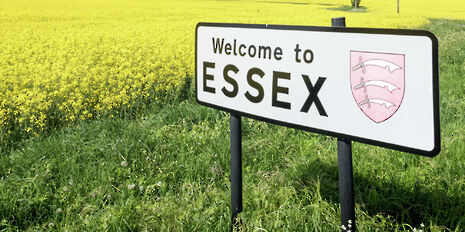Too Essex for Cambridge?
Reflecting on her experiences, Emma Thompson implores us to break the perception that there is a ‘right’ way to speak

Before coming to Cambridge I was sure of one thing: there would be a fair few people who could easily be described as ‘posh’. I envisioned friendship groups where the ‘poorest’ member had merely two or three large houses and held the accent from which the infamous ‘gap yah’ stemmed. This stereotype I held was a far cry from my own. Having lived in Essex all my life, I seem to have been graced with the highly-stigmatised Essex accent – something which I was certain I would be mocked for, be it in a friendly manner or not, by my fellow students. I hasten to add that I am in no way ashamed of my accent. If anything, the reverse applies. I find it fascinating how a regional accent can act as a partial representation of the life I have lived and the upbringing I have had up until university. I do not want to speak in the ‘posh’ standard English accent that I feel is stereotypical of a fair proportion of Cambridge students, but I initially felt that other people would want me to speak like that.
“Why was it that my accent was causing an added level of pressure to an already challenging situation?”
On the way to my Cambridge interview, whilst trying to re-read my personal statement for the 19th time that day, I suddenly considered how my accent would portray my intellectual abilities. Should I try and enunciate my words more explicitly? Should I try and avoid dropping the ’r’s on the end of words, or stop dropping my ’t’s using the infamous ‘glo’al stops’? This is exactly what I intended to do. I walked into my interview room, sat down and took a deep breath before being greeted with an accent almost identical to my own. Suddenly, some of my apprehension was appeased. Why was it that my accent was causing an added level of pressure to an already challenging situation? The idea that a regional accent – be it from Essex, Liverpool, Birmingham or Yorkshire – can cause an added level of stress to one’s experiences with everyday situations is something which I find particularly difficult to accept.
The mocking inevitably came on the first day of Freshers’ Week when the inundation of questions such as ‘where are you from?’ circled the group of us crammed into the narrow accommodation corridors armed with a Domino’s and some bottles of vodka.
However, when I was faced with the same questions, I was met with impressions rivaling those seen on popular reality TV: “Oh my gawdddddd, are you from Essex? Shuuuuut uppp.” Whilst even discussing over dinner the Cambridge student stereotype, which is flourished with notions of a private education, a friend of mine even commented: “well it is obvious you didn’t go to a private school.” I assume that this judgement was based purely on the way I speak, and whilst I recognised this was only jovial, it only highlighted the ways in which your accent can be a defining factor in the way you are perceived.
The believed contingency between an Essex accent and a lower educational achievement is something which I feel has been perpetuated by the reality television show The Only Way is Essex. The over-exaggerated accents of the cast members in no way parallels the majority of speakers where I live, and the scenes of leisurely afternoon lunches with no real job commitments, undoubtedly intensifies the idea of a below average academic achievement.
With Cambridge determined to be more accessible to not just the stereotypical private-schooled student, breaking the perception that there is a ‘right’ way to speak is vital in moulding a more diverse student population
 News / Eight Cambridge researchers awarded €17m in ERC research grants27 December 2025
News / Eight Cambridge researchers awarded €17m in ERC research grants27 December 2025 News / Clare Hall spent over £500k opposing busway 24 December 2025
News / Clare Hall spent over £500k opposing busway 24 December 2025 Comment / League tables do more harm than good26 December 2025
Comment / League tables do more harm than good26 December 2025 Comment / The ‘class’ of Cambridge24 December 2025
Comment / The ‘class’ of Cambridge24 December 2025 News / Caius mourns its tree-mendous loss23 December 2025
News / Caius mourns its tree-mendous loss23 December 2025








